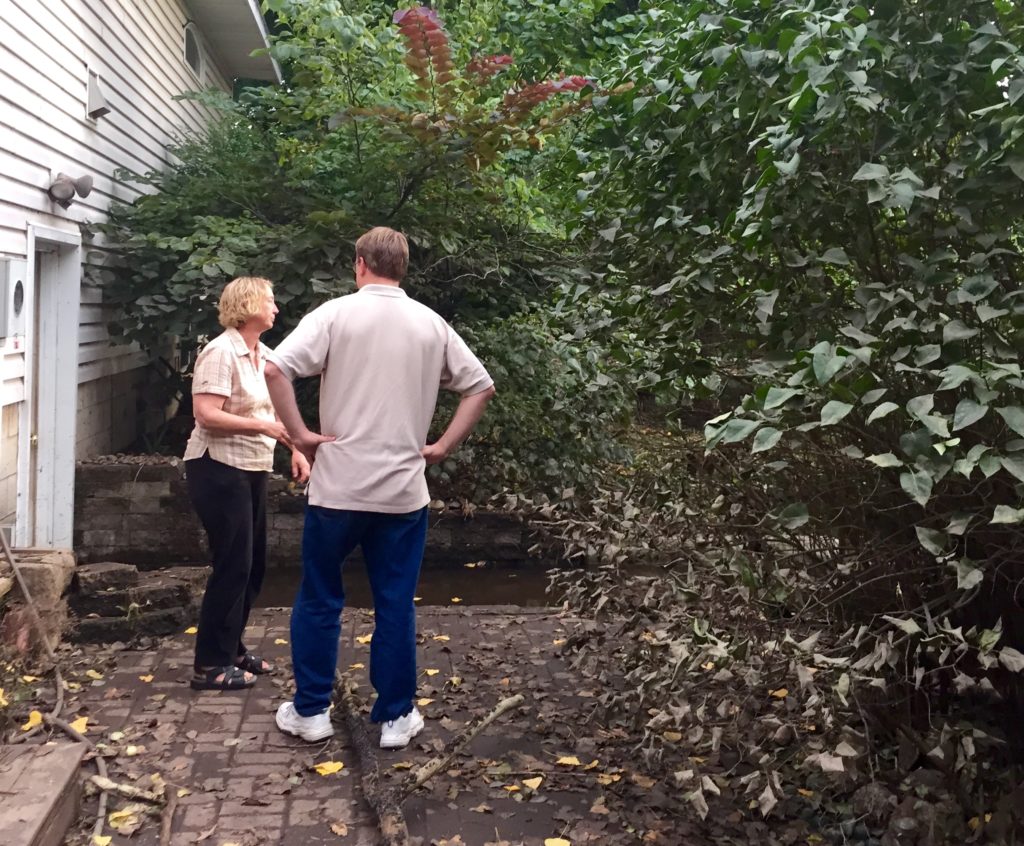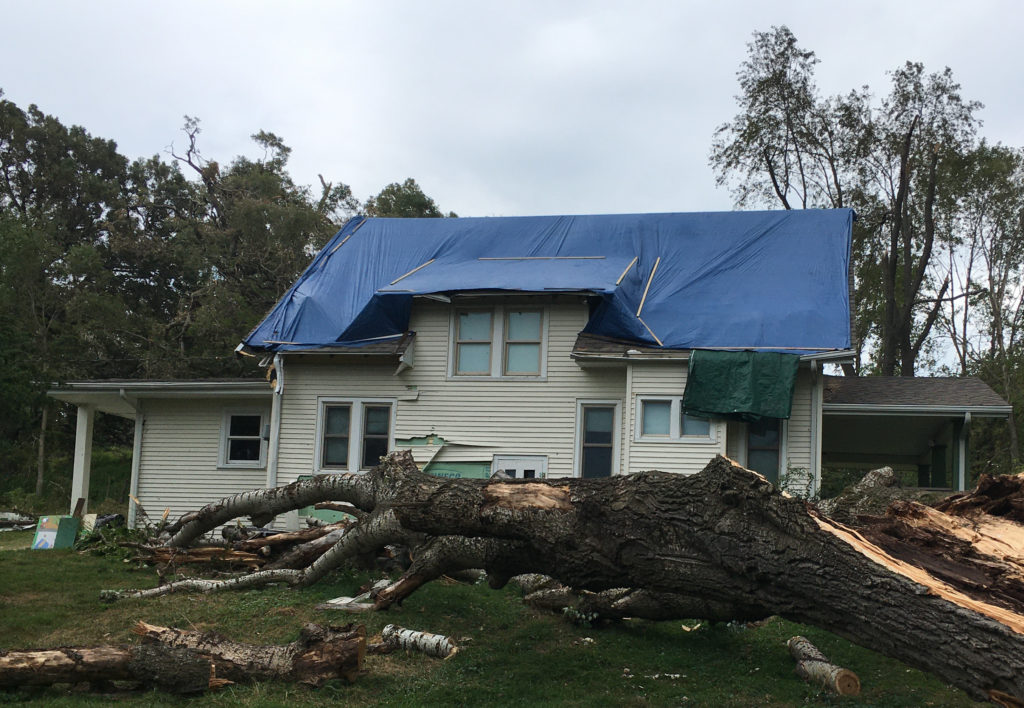Climate Change: Real Consequences for Real People
By Rob Hogg
Climate change is not an abstraction. It has real consequences for real people.
Over the last two decades, Iowa has suffered multiple unprecedented extreme weather events.
On June 13, 2008, an unprecedented flood on the Cedar River in Cedar Rapids pushed river levels more than 10 feet higher than any previous flood, damaging over 5,000 homes and buildings and causing $5 billion of damage in a city of 125,000.
No one died in our flood, although one of our church members lost a son when he had a heart attack after cleaning up flood damage.
The economic damage was widespread, especially because insurance policies generally exclude flood damage. Our home was not flooded, but the second-floor business where I worked was out of its offices for over three months while repairs were made.
On top of the economic damage, the flood caused severe emotional heartache and trauma.
A woman lost personal items she had attempted to save by putting them on the second floor of her home. A man lost his home, business, and church to the flood, all in the same neighborhood. As people cleaned up, piles of debris lined the streets and the smell of post-flood muck was overpowering.
I didn’t think I would ever experience anything worse.
But on August 10, 2020, a derecho crossed Iowa. A derecho is a line of thunderstorms which bring damaging heavy winds.
Our derecho was over 100 miles long and brought hurricane-force winds up to 140 miles per hour. Hurricane-force winds lasted almost an hour in Cedar Rapids. A man died when a tree fell on him while he was trying to bicycle to safety. Two others died elsewhere in Iowa.
Cedar Rapids lost over 60% of its tree canopy. Thousands of buildings were damaged. One of our beautiful old trees fell onto and into our house. Much of the city lost power. We did not have electricity restored at our home for 11 days.
Overall, Iowa suffered $11.5 billion in damage from the derecho, called the “costliest thunderstorm in U.S. history” by the National Oceanic and Atmospheric Administration.
Unlike the flood, there was more insurance coverage for the damage done. It didn’t cover most tree removal costs, but it helped pay to rebuild our house. But others – like tenants and refugee families in apartments that were rendered unlivable – didn’t have insurance and basically lost everything. The poor and marginalized communities are suffering the most and are at greatest risk from climate change.
Even with insurance, there is heartache and trauma. We did not get our roof replaced until November, so every time it rained or snowed for three months we were collecting water as it dripped through our tarp. We did not get interior repairs and siding replaced until a year later, and as I write this we are expecting the gutters to be replaced this week. Fingers crossed.
It will be decades before the trees we have planted can replace those we lost, if the new trees survive the current drought and the increasing numbers of invasive pests in Iowa.
Climate-related disasters are all around us, increasing in number and severity. There are so many it is hard to remember all the hurricanes and floods and wildfires that have hit the United States in recent years, let alone those around the world.
When we say we are called to protect God’s Creation and all of us as God’s children, this is one snapshot of what is at stake.
The good news is, our relationship with God gives us the freedom, strength, love, and hope to help people affected by climate disasters, and to advocate for policies and practices to slow down and stop the buildup of greenhouse pollution in the atmosphere.
Rob Hogg is a member of Christ Episcopal Church in Cedar Rapids in the Episcopal Diocese of Iowa. He is a member of the Presiding Bishop’s delegation to the 26th Conference of the Parties in Glasgow that runs from October 31 to November 12.

September 28, 2016. Rob was visiting with a homeowner whose house was inundated for the second time in eight years in Shell Rock, Iowa. The Shell Rock River is a tributary to the Cedar River, and reached record flood levels in 2016 after 10 inches of rain fell upriver in a single day. Climate change affects people living in both rural small towns and big urban cities.

August 22, 2020. Rob’s house with a tarp on it after a tree which fell on the house during the derecho had been removed from the roof. Extreme weather events, fueled by climate change, cause economic hardship and emotional heartache, even trauma, for the people who are affected.

